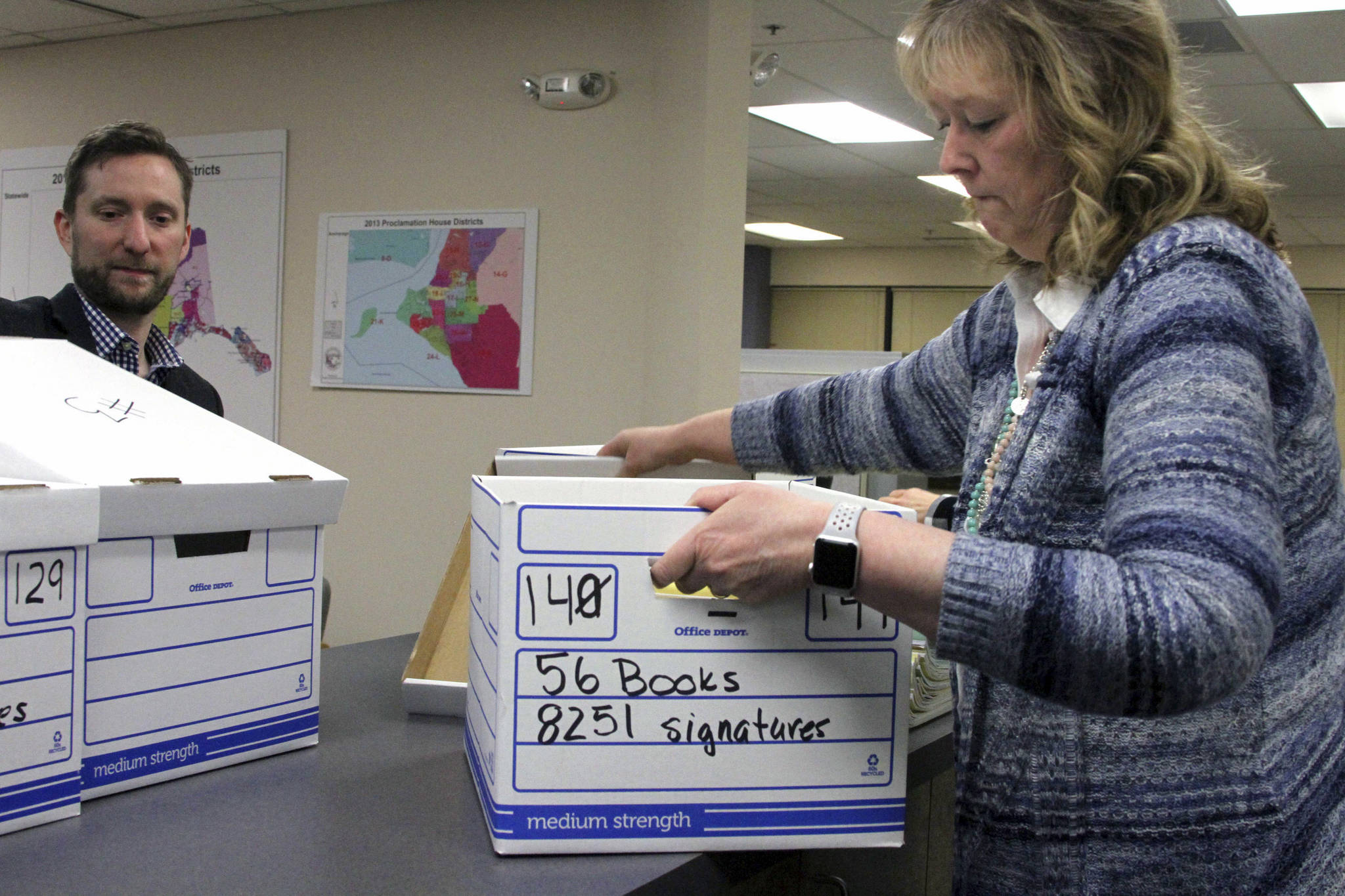The backers of two ballot measures are turning in their required signatures to the Alaska Division of Elections, keeping the measures on track for a fall 2018 statewide vote.
On Friday, the leaders of a measure putting new restrictions on Alaska lawmakers submitted boxes of signed petitions to the division in Anchorage. On Tuesday morning, the backers of a pro-fisheries measure are expected to do the same.
Both ballot initiatives were required to turn in their signatures before the start of the legislative session in order to appear on the fall ballot.
Backers need 10 percent of the previous general election tally. In 2016, 321,271 Alaskans voted. That means each ballot initiative needs 32,127 signatures.
Those signatures have to be spread across the state: Signatures have to come from at least three-quarters of the state’s 40 House districts, and in each of those districts, the signatures have to represent at least 7 percent of the people who voted in 2016.
In the Mendenhall Valley, for example, 9,106 people cast ballots. That means ballot-measure supporters would need 637 signatures from House District 34.
Yes for Salmon, the group submitting the second petition, said by email it intends to submit more than 40,000 signatures in order to have a margin if some signatures turn out to come from people who haven’t registered to vote.
Yes for Salmon’s ballot initative would place restrictions on construction projects that affect salmon streams, and — if deemed complete by the Division of Elections — will face opposition from drilling, mining and construction organizations. Those groups have formed a rival political committee, Stand for Alaska, to oppose the measure. Gov. Bill Walker has also said he will not vote for the measure.
The initiative was initially declared invalid by the state, but Yes for Salmon appealed that decision to the Alaska Superior Court, and a judge ruled in favor of the measure’s backers. The state has since appealed the superior court decision.
The other ballot initative, called The Alaska Government Accountability Act, is sponsored by two sitting lawmakers and an Anchorage activist. If approved by the Division of Elections and by voters, it would impose conflict-of-interest guidelines on all lawmakers, place limits on their foreign travel and limit some political contributions. Perhaps most significantly, lawmakers would see their per diem expense payments limited if they fail to approve a state budget within a certain timeframe.
If the signatures are deemed valid, the ballot measures will appear on the fall primary election ballot unless the Alaska Legislature fails to finish on time. If lawmakers work a week past the set deadline, the measure will appear on the general election ballot.
• Contact reporter James Brooks at james.k.brooks@juneauempire.com or call 523-2258.

